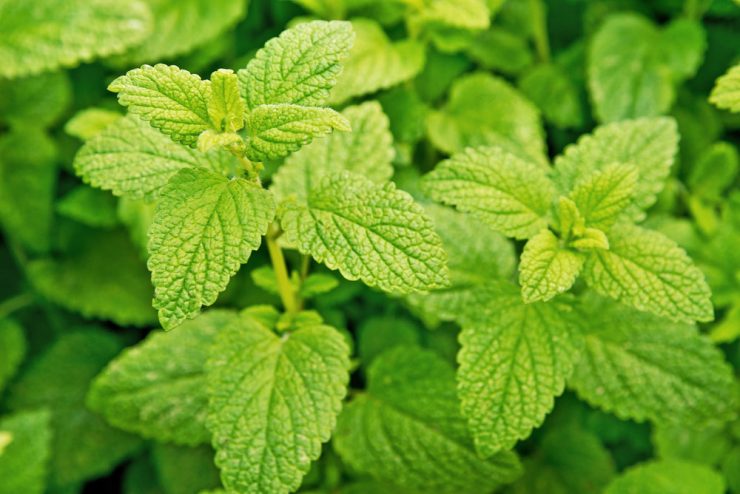Discover everything you need to know about lemon balm.
Native to the Eastern Mediterranean, lemon balm Melissa officinalis, is a perennial herb, which now grows wild all over Europe. A member of the mint family, it grows up to two ft high and in the spring and summer clusters of small light yellow flowers appear where the leaves meet the stem. Rubbing your fingers on the leaves releases a lovely lemony smell.
History of use
Lemon balm has been used for thousands of years as a mood lifter. It is often mentioned in the Greek and Latin classics and the ancients commonly steeped lemon balm leaves in wine to help bring fevers down and to lift the spirits. It was used in the Middle Ages to reduce stress and anxiety, promote sleep, improve appetite and ease the pain and discomfort associated with poor digestion such as flatulence and bloating, as well as colic.
The herbalist John Gerard writing in the 16th century declared that ‘…it comforteth the hart and driveth way all melancholie and sadnesse…’ while it was praised by the German herbalist Paracelsus as an elixir of youth. The leaves were often strewn on floors to freshen up a room as mentioned by Shakespeare in The Merry Wives of Windsor.
How can it help?
Research shows that components in lemon balm’s volatile oils, such as citral and citronella, have antispasmodic properties that have a calming effect on the central nervous system. It is often used with valerian as a relaxing tonic for anxiety, mild depression restlessness and insomnia. It is also thought to be good for stress-related stomach disorders such as acidity and indigestion, as well as nervous tummy upsets in children.
Research also shows lemon balm to be effective against bacteria and the herpes simplex virus (HSV), which is responsible for cold sores. In one study of 116 people with HSV[i] those who applied lemon balm cream to their sores experienced significant improvement after just two days.
Lemon balm creams can also be used on insect bites, sores and slow healing wounds. The essential oil is often used in aromatherapy for nervous problems and also diluted in water sprays for keeping insects away.
How to use it
Lemon balm can be taken as a tea, tincture or in capsule form. To make your own tea simply put a small handful of leaves into a mug, fill with boiling water and leave to infuse for around 10 minutes before drinking. If using dried leaves you will need around one teaspoonful.
You can dry the leaves yourself by spreading them out on newspaper or hanging them in bunches in a dark airy place away from any light or heat.
Watchpoint
If you are taking sedatives for sleep problems or anxiety or medications to regulate your thyroid you should consult your GP before taking lemon balm.
[i] www.ncbi.nlm.nih.gov/pubmed/18693101
























Add comment